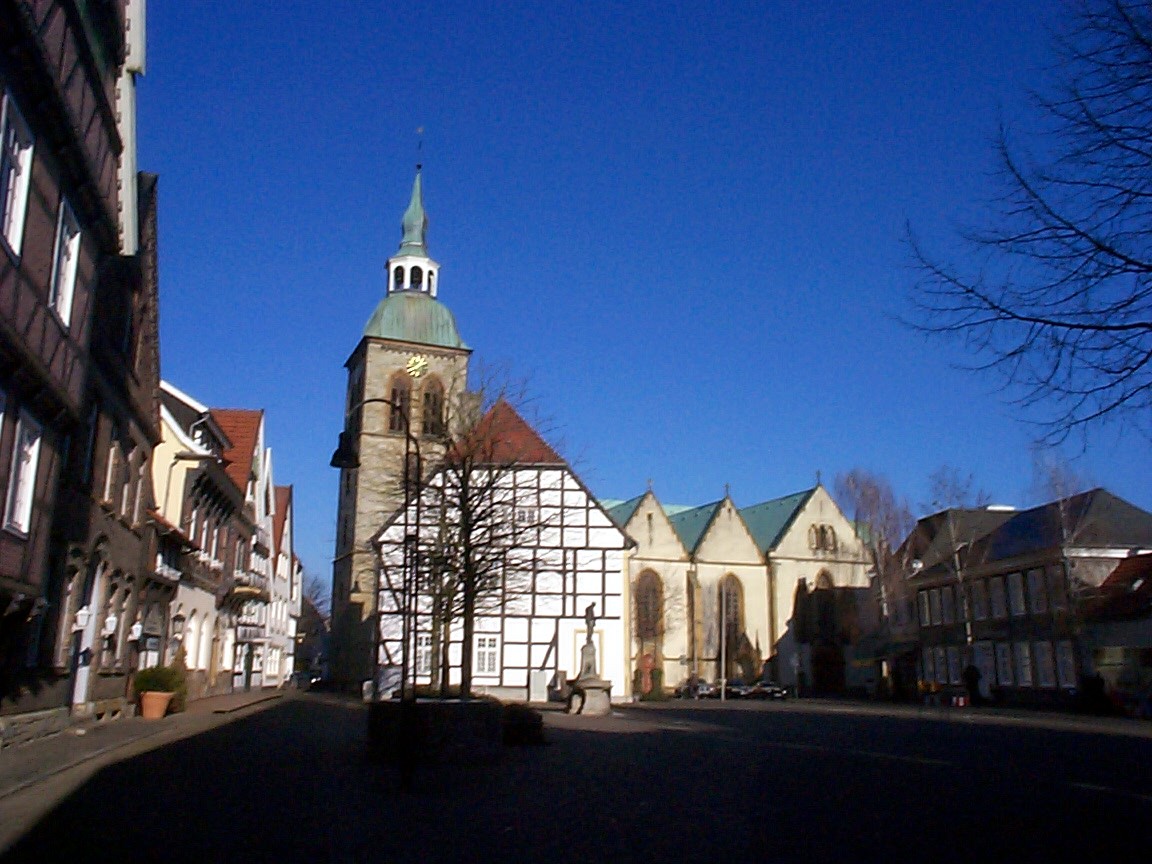The little hyphen there between Rheda and Wiedenbrück is a lot more controversial than it might seem.
Up until recently, Rheda and Wiedenbrück were separate towns. In fact, Rheda-Wiedenbrück's history is dwarfed by that of Rheda and Wiedenbrück. Wiedenbrück was first a town in 758 AD, while Rheda first got its rights as a town in 952.

Wiedenbrück marketplace
That means that Wiedenbrück is more than 1000 years older than the US itself. This kind of perspective is hard to keep in mind walking through the cozy little marketplace or "old town" of either Stadtteil.
Throughout the long history, a sort of rivalry developed between Rheda and Wiedenbrück. The way I understand it is: people from Rheda were typically Protestant workers while people from Wiedenbrück were typically Catholic merchants.
Through the history of Germany, and all of Europe for that matter, there was always tension between Catholics and Protestants. Religious and cultural difference are hard to differentiate from each other, but in any case, the towns became even fiercer rivals.
Fast forward to 1970. German bureaucracy wants to reorganize the district and town lines. Rheda and Wiedenbrück, longtime rivals, are now one town. First there's controversy on what to call the new town: Rheda-Wiedenbrück? Wiedenbrück-Rheda? In which town should the town hall be?
Now everything has settled down, the city hall, unfortunately the ugliest building in the town, is in Rheda, and the heated rivalry has turned to a more friendly one. Still, if you want to start an argument in a pub, at a party, or in a classroom, all you have to do is shout "Rheda is better than Wiedenbrück!" and sit back and watch.

As for me, living in Rheda, I've got to defend my adopted home town. But really, both towns have advantages and disadvantages, both are nice towns, and there are nice people in Rheda and Wiedenbrück.
But, we've got the train station and the castle in Rheda. Take THAT, Wiedenbrückers!


